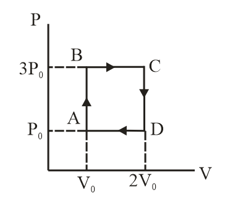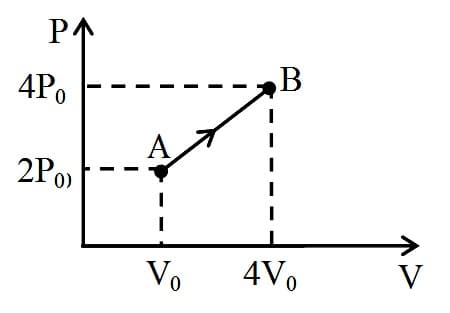Specific Heats of Gases
Specific Heats of Gases: Overview
This topic covers concepts such as Molar Specific Heat Capacity at Constant Volume, Molar Specific Heat Capacity at Constant Pressure, Molar Specific Heat Capacities in Terms of Gas Constant, etc.
Important Questions on Specific Heats of Gases
Why the specific heat at a constant pressure is more than that at constant volume.
What is specific heat of gas at constant pressure
At a given temperature, the specific heat of a gas at constant pressure is always greater than its specific heat at constant volume.
An insulated box containing a diatomic gas of molar mass is moving with velocity . The box is suddenly stopped. The resulting change in temperature is . What will be the value of ?
Define molar specific heat capacity at constant volume and pressure.
A molecule of a gas has six degrees of freedom. Then, the molar specific heat of the gas at constant volume is
One gram mole of an ideal gas with the ratio of constant pressure and constant volume specific heats is mixed with gram moles of another ideal gas with . If the for the mixture is , then what will be the value of ?
An ideal monatomic gas is carried along the cycle as shown in the figure. The total heat absorbed in this process is

For the next three questions
An ideal diatomic gas is expanded so that the amount of heat transferred to the gas is equal to the decrease in its internal energy.
The molar specific heat of the gas in this process is given by C whose value is
Two mole of oxygen is mixed with eight mole of helium. The effective specific heat of the mixture at constant volume is _____.
Two moles of a certain gas at a temperature, are cooled isochorically so that the pressure of the gas gets reduced by times. Then, as a result of isobaric process, the gas is allowed to expand till its temperature gets back to the initial value. Find the total amount of heat absorbed by gas in this process.
Find the specific heat of a mixture of two moles of and eight moles of at constant volume:
A thermally insulated piece of metal is heated under atmosphere by an electric current so that it receives electric energy at a constant power P. This leads to an increase of the absolute temperature T of the metal with time t as follows
Then the heat capacity is
One mole of a monoatomic ideal gas undergoes the process, as in the given diagram. The specific heat for this process is

Heat required to raise the temperature of 1 mole of a substance by is called
22 g of is mixed with 16 g of oxygen at 37. The temperature of the mixture is
The value of molar specific heat at constant pressure for one mole of triatomic gas (triangular arrangement) at temperature is the universal gas constant)
A bubble of 8 mole of helium is submerged at a certain depth in water. The temperature of water increases by . How much heat is added approximately to helium during expansion?
70 cal of heat is required to raise the temperature of 2 moles of an ideal gas from 30 to 35 while the pressure of the gas is kept constant. The amount of the heat required to raise the temperature of the same gas through the same temperature range at constant volume is (gas constant
For the same rise in temperature of one mole of gas at constant volume, the heat required for a non-linear triatomic gas is times that required for monatomic gas. The value of is
